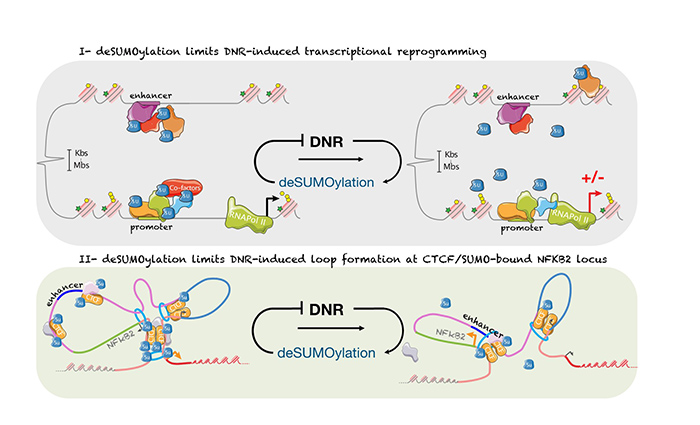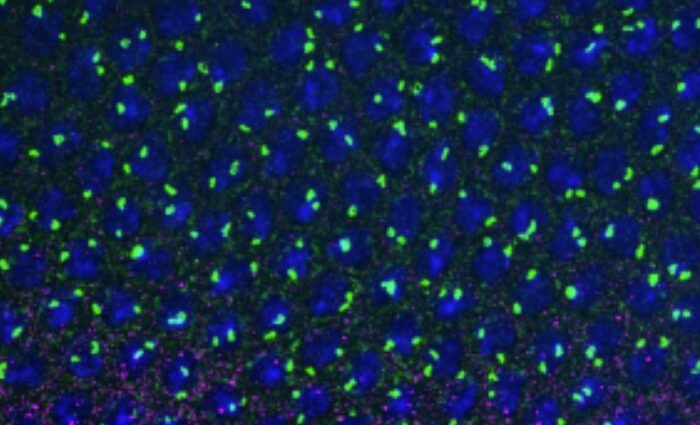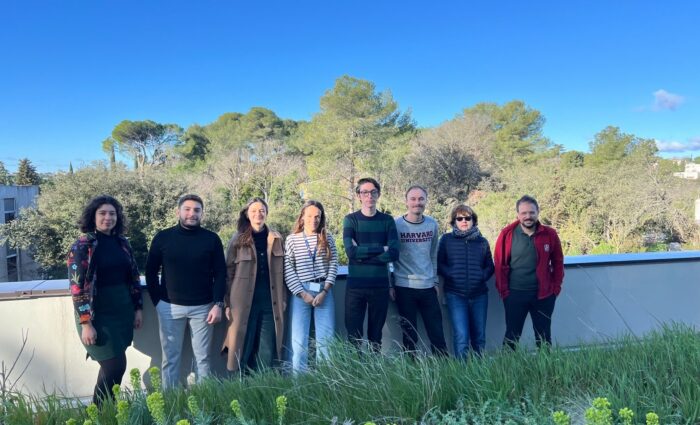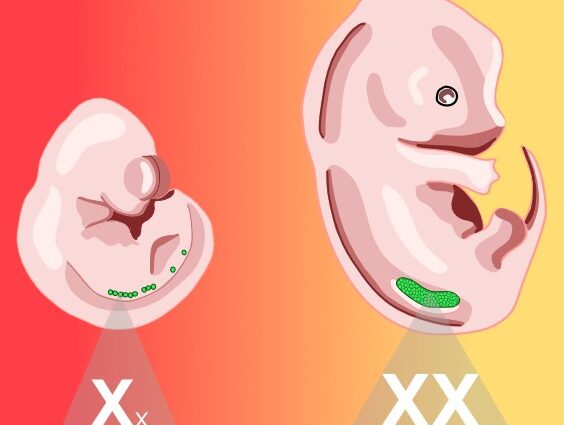Guillaume Bossis’ team showed in this manuscript published in Nucleic Acids Research that daunorubicin, the main chemotherapeutic drug used for Acute Myeloid Leukemias, a severe blood cancer, induces a rapid transcriptional reprogramming in leukemic cells with almost 1000 genes being up- or down-regulated in less than 3 hours. This reprogramming is preceded by a massive deconjugation of the post-translational modifier SUMO from its target proteins, in particular those bound to promoters and enhancers. This deSUMOylation limits DNR-induced transcriptional reprogramming. We then studied in more details, NFKB2, one of the top DNR-induced genes. Our data suggest that DNR induces the formation of a CTCF-mediated loop between its promoter and a distal enhancer, which could explain NFKB2 induction. Finally, inhibition of SUMOylation prevent the formation of the loop and the induction of NFKB2 gene. Hence, our work shed new lights on the mode of action of chemotherapeutic drugs.
Boulanger M, Aqrouq M, Tempé D, Kifagi C, Ristic M, Akl D, Hallal R, Carusi A, Gabellier L, de Toledo M, Sigurdsson JO, Kaoma T, Andrieu-Soler C, Forné T, Soler E, Hicheri Y, Gueret E, Vallar L, Olsen JV, Cartron G, Piechaczyk M, Bossis G.Nucleic Acids Res. 2023 Jul 18:gkad581. doi: 10.1093/nar/gkad581. Online ahead of print.PMID: 37462077
https://doi.org/10.1093/nar/gkad581








